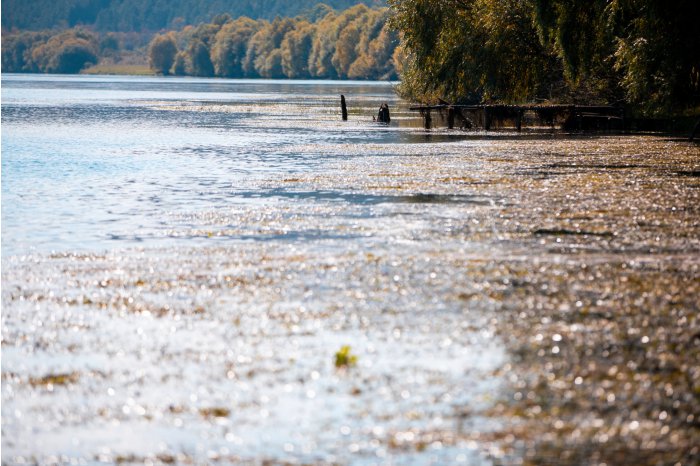Moldovan Environment ministry negotiated agreement on work of Dniester Hydro-electric Power Plant
20:56 | 08.12.2021 Category: Social
Chisinau, 8 December /MOLDPRES/ - One of the pressures which might hit the residents of Moldova in the next years and which must be overcome as soon as possible is the access to the drinking water, which is decreasing continuously. This is one of the priorities of the Environment Ministry at the recent negotiations on the agreement on the work of the Dniester Hydro-electric Power Plant (CHN).
„Ukraine, on the territory of which the Dniester river flows, in the last years has been constructing a power plant in the Novodnistrovsk settlement, at the border with Moldova, the work of which hits the ecosystem of the Dniester river and runs the risk of triggering environment problems for Moldova,’’ the Environment Ministry says.
The participants in a meeting of the commission for the sustainable use and protection of the Dniester river basin, (Dniester Commission), held in Chisinau in the last autumn, pointed out a string of problems with impacts regarding the work of CHN, which need clarifications and settlement at the level of both countries.
The Moldovan side in the commission asked the Ukrainian side to observe more conditions which ensures the flow of water of 130 metre/second; the water volumes should not decrease and the thermal regime should not change. A recent study on the social and environmental impact of CHN, ordered by the United Nations Development Programme (UNDP) in Moldova and elaborated by a group of independent experts, at a request by the Moldovan Environment Ministry, with the financial support of Sweden, highlights a change at the level of the eco-systemic services, the decrease, and in some cases, disappearance of a number of species of fish living only in clean waters, appearance of new invasive species, which eliminate local species.
According to specialists, as a result of the change of the thermal and hydrological regime of the Dniester waters, the number of species with low resistance to oscillations of temperature and hydrological regime diminished. Therefore, the capacity of water’s self-purification is reducing, which triggers reduction of Dniester’s potential as recreation environment, affecting the quality of life and the tourist opportunities in the region.
The Environment Ministry said it would constantly update the commentaries on the evolution of the negotiations of the Moldovan-Ukrainian working group on the Dniester Hydro-electric Power Plant and the regime of work of this plant. The government is also to amend the decision on the providing of powers, which see the updating of the group of negotiators, which will allow resuming the rounds of talks on the agreement on work of the Dniester Hydro-electric Power Plant. Preliminarily, the negotiators on behalf of Moldova proposed the setting of systems of monitoring with a joint implementation plan.
At the same time, the Environment Ministry said there was a problem, but not an ecologic war. ‘’No speculation or erroneous interpretations will facilitate the process of negotiations with the Ukrainian side. It is known that the neighbor country Ukraine, just as Moldova, uses the resources of the Dniester river and an eventual impact of CHN’s activities would hit the environment and the economy of both states,’’ the environment authority of Moldova said.
The commission for the sustainable use and protection of the Dniester river basin, (Dniester Commission), was founded based on the agreement between the governments of Moldova and Ukraine on cooperation in the field of protection and sustainable development of the Dniester Hydrographic Basin, signed in Rome in 2012 and ratified by the Ukrainian side in 2015.
Photo: Environment Ministry

